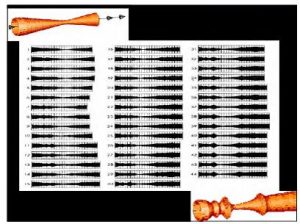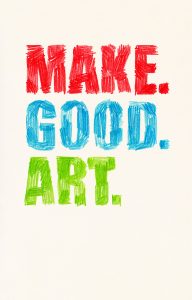The Unitarian Society
East Brunswick, NJ
March 11, 2018
In the 1960s, the Unilever corporation, in their quest to make and sell laundry d etergent, encountered a problem. Now, remember, this is more than fifty years ago, so the ubiquitous form of laundry detergent in our homes was…powder, that came to us in rectangular cardboard boxes. Remember?
etergent, encountered a problem. Now, remember, this is more than fifty years ago, so the ubiquitous form of laundry detergent in our homes was…powder, that came to us in rectangular cardboard boxes. Remember?
Unilever’s system involved pumping, at high pressure, from a gigantic outdoor tank, liquid detergent into an indoor space, through a hose, out a nozzle, where the fine mist of liquid detergent would make contact with air, dry, and fall to the floor where it was then scooped cardboard packaging.
However, the nozzle kept clogging. They had invested in a brilliant, knowledgeable engineer to design the correct nozzle but that did not work. The situation was too complex for the approach of analyze problem, design solution, experience success.
So they turned old school: trial and error.
Embracing failure as the teacher it is, they made ten copies of the nozzle, adjusting each one just a bit, each differently, then tried it out. They then took the one that was most successful, and copied it, creating another ten nozzles, varying that one ten different ways, just slightly. Over and over again, trial and error, refining the nozzle’s design.
After 45 generations and 449 ‘failures’, they had a nozzle that was outstanding.

I hope, whatever it is that you are trying to figure out in your life right now, that it does not take 449 trials for you to reach outstanding. However, given that you are still breathing, you will, no doubt, encounter moments of trial and error, of actual failure, sometimes more than you think you can in that moment bear, and you will have to choose how to respond. We will have to choose how to respond. I will have to choose how to respond.
Will we “keep trying, just not the same thing,” as our reading by the poet Mark Nepo advised?
Will we increase the burden with the weight of my own tendency to be hard on ourselves?
I think this is a good question for each of us individually and most definitely an important question for us as a congregation in the 21st century.
~~~
The Berry Street Lecture is the longest, consecutively-running public lecture in the United States, and it’s ours – it is Unitarian Universalist. In 2015, Reverend Sean Dennison, who currently serves our UU congregation in Ashland, Oregon, gave a talk with the title “Mission Impossible: Why Failure is Not an Option.” But he was being clever, playing with words. He was suggesting that failure is not an option because it is inherent in the process, it is unavoidable. We cannot help but fail. Sean noted that, “If our mission is big enough, we will fail….It is inevitable.”
Oh, I am not a big fan of this particular growth opportunity. The lesson of befriending failure. The lesson of appreciating, or even just accepting, imperfection. They say that best sermons that a minister preaches are the ones that we ourselves need to hear. I don’t know if this one will be among my best, but I know I need to hear this. Over and over again. I need to hear and practice that failure is my friend. Is our friend. Is okay.
And, at least when it comes to the larger challenges we are facing in our shared congregational life, is just might be what we should be aiming for.
~~~
I’m guessing that you have heard Unitarian Universalism described as a non-creedal religion – we do not have a dogma, or set of beliefs, that we must affirm. I’m hoping that perhaps as a counter point to that description, you have heard that Unitarian Universalism is covenantal – that the promises we make to each other, the expectations of how we treat each other, the relational shape we take as a gathered people – these are what bind us, all the way back to our Puritan ancestors.
To live into this reality of covenant, many Unitarian Universalist congregations develop covenants to help, what my friend and colleague, Reverend Jordinn Nelson Long, make “explicit those things we each hold to be obvious.” There are board covenants, and covenants of right relations. Some congregations ask all their committees to develop a covenant. Youth groups have covenants and our children in religious education practice making them as well.
In this congregation, we have a Covenant of Right Relations, developed about eight years ago. The Committee on Shared Ministries developed a covenant this past fall. They are super proud of it and would love to share with anyone who is interested. Even the staff of this congregation has a covenant, finished just last month.
As the staff were in the process of developing our covenant, the outside facilitator noticed that there was a thread running through our process: an impulse towards perfectionism and creating compassionate ways to respond to the inevitable falling short. Responding to this, the covenant reads as follows:
Give each other permission to take creative risks, knowing that not all of our ideas will work out, recognizing that perfectionism is a barrier to growth, viewing our inevitable mistakes as opportunities for growth and a deepening of relationship, and that apologies and forgiveness are tools to enhance this process. (**borrowed from another UU congregation because this language is so awesome!)
A more concise way to say that: embrace failure. Take as our ethos the quote from Samuel Beckett: “Ever tried. Ever failed. No matter. Try Again. Fail again. Fail better.”

~~~
Which sounds awesome and clever and poetic and all that, but there’s just one teensy-weensy thing: for some of us type-A personalities, but more importantly, for society in general, we don’t embrace failure. We fear it. Sean Dennison said it this way, “The system has taught us that our value comes from our proximity to perfection.”
While this may be my sh*t, it is not only my sh*t. I know that I am not alone. (Can I get an amen?)
The problem with this, as Sean Dennison also said, is that
… as long as we fear failure—as long as we use up vast amounts of energy trying to be perfect, absolutely and adamantly competent, we are not going to have the energy to be or become the relevant, responsive, passionate, and growing movement of Unitarian Universalists we yearn to be. As long as we are frozen in our tracks by the fear that we might fail or more accurately, that others might find out we fail, we are stuck thinking small, making only the safest of plans that we already know will succeed. But I am here to tell you: You might as well go ahead and plan to fail, because you’re going to do it anyway. You already are.
~~~
I want to share with you the closing words by the British author, Neil Gaiman, from his speech to a group of graduates called, “Make Good Art.”
And now go, and make interesting mistakes, make amazing mistakes, make glorious and fantastic mistakes. Break rules. Leave the world more interesting for your being here. Make good art.
 Make good art. We could translate this into make good church. And he says make good art and make the art only you can make. This translates into “make good church that only we Unitarian Universalist can do,” so in our case it might be “make good Society” or “make good congregational life” neither of which have the same oomph as “make good church.”
Make good art. We could translate this into make good church. And he says make good art and make the art only you can make. This translates into “make good church that only we Unitarian Universalist can do,” so in our case it might be “make good Society” or “make good congregational life” neither of which have the same oomph as “make good church.”
This is what the 21st century America is calling us to do: figure out how to make good art with the ethical, spiritual, and community tools in our possession, here in the midst of a rapidly changing cultural landscape full of division, isolation, institutionalized exclusion, enormous shifts in cultural power and demographics, and at the same time, is becoming less and less interested in congregational life.
Do I think the need for people to gather and to belong and to find purpose will go away? No, because I don’t think the deep need to do these things will go away. In fact, I think these unmet existential longings – to gather, to belong, to find purpose – will only grow as materialism, climate constriction, and authoritarianism grows in our midst. But they are always being met by new means, and this requires of us to follow that Samuel Beckett’s advice, “ever [try]. Ever [fail]. No matter. Try Again. Fail again. Fail better.”
~~~
Two weeks from today, just after the service, and with light lunch provided so that your hungry stomachs will not distract you, our Director of Religious Education, Jillian Post, will be facilitating a Town Hall open to all. This meeting was sparked by a series of workshops, the first one called, provocatively, “The Death of Sunday School,” and then re-titled for fear of scaring folks off to “The Future of Faith Formation,” and then the rest of the workshops called, “The Sequel to Sunday School.” Jillian is going to share with you all – since this is your congregation and its life and future, are in your hands and our hands as a shared ministry – information about the changing cultural landscape and how that is impacting religious education.
It turns out that the solutions that worked in the past, don’t apply in the same ways or, in many cases, at all. Just over twenty years ago, there were just over 80 kids enrolled in the RE program with 2/3 – ¾ of them attending regularly. This year we have 23 registered and we have somewhere between 1/3 and ½ attending on any given Sunday. Our nozzle is clogged.

Spoiler alert: no one knows what the solutions to this challenges facing religious education are or are going to be. We – each UU congregation and the whole of Unitarian Universalism (and really, the whole of mainline Protestantism, many Catholic congregations, and most of the Jewish congregations) – can’t just hire an engineer to develop the perfect nozzle. We are going to have to get friendly with risking and failing, with trial and error, with experi-learning, with embracing failure as the cruel and kind teacher it is. We get to practice viewing our inevitable mistakes as opportunities for growth and a deepening of our relationships with each other. We get to live into the understanding that apologies and forgiveness are tools to enhance our shared communal life.
It’s exciting and frightening and daunting and stimulating. And it calls on all of us to be a part of it, because while Jillian will be presenting on religious education, the dynamics and influences she will name impact nearly every aspect of congregational life. I hope you will join me in attending this important event.
~~~
Whenever I am given a big piece of news, particularly if there is a strong emotional component to it –something that might overwhelm me, or cause me to worry, or be afraid — I go to poetry. With poetry, I am more likely to feel held and I am more likely to feel not so much alone. So I offer you this poem from Wendell Berry, titled, [ten – the Roman numeral “X”], from his collection called, “Leavings:”
I go by a field where once
I cultivated a few poor crops.
It is now covered with young trees,
for the forest that belongs here
has come back and reclaimed its own.
And I think of all the effort
I have wasted and all the time,
and of how much joy I took
in that failed work and how much
it taught me. For in so failing
I learned something of my place,
something of myself, and now
I welcome back the trees.
For in so failing, I learned something of my place, something of myself. Ah, this will be my spiritual practice, this will be my mantra, repeated mostly for my own ears, my own heart to hear so that I might trust it: For in so failing, I learned something of my place, something of myself.
I need this spiritual practice because if our congregants are going to be relevant, while we cannot do it on our own, ministers must lead the way. Doing so not without fear, but in spite of the fear of failure. Perhaps like what Humpty Dumpty experienced as he climbed that very tall wall, before he found himself flying.
For in so failing, I learned something of my place, something of myself.
You have to keep on trying, just not the same thing.
Ever tried. Ever failed. No matter. Try Again. Fail again. Fail better.

Amen. Blessed be.
References
Berry, Wendell. “Leavings.”
Davies, Sam Thomas. “What 449 ‘Failures’ Can Teach Us About Success, https://www.samuelthomasdavies.com/unilever/
Dennison, Sean. “Mission Impossible: Failure is Not an Option,” Berry Street Lecture, 2015.
Gaiman, Neil. Make Good Art.
Nepo, Mark. “Joining the Circus,” The Way Under the Way,” 2016
O’Donohue, John. “A Blessing for Failure,” Blessing the Space Between Us.
Thanks so much Abbie. Xx
You are so very welcome.